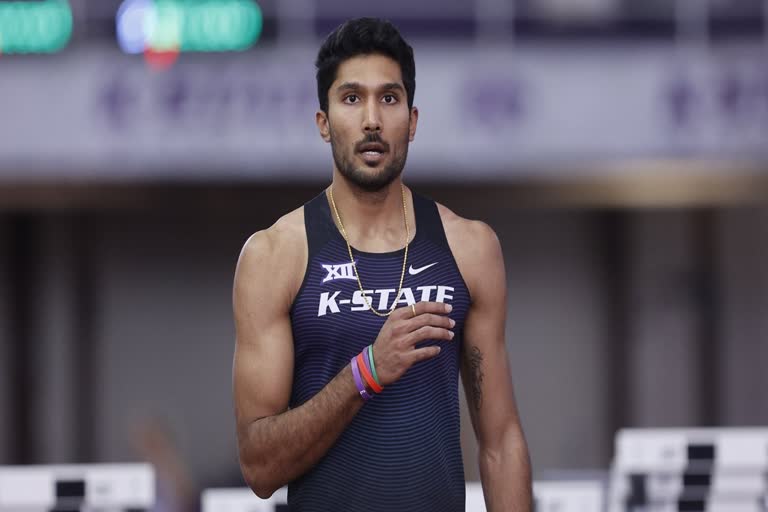New Delhi: The Athletics Federation of India (AFI) on Wednesday told the Delhi High Court that it will include Tejaswin Shankar, India's high jump national record holder, in the 2022 Commonwealth Games squad. Shankar was knocking the doors of the High Court as he was not included in the list of 36 names picked by the federation for the CWG squad. AFI's counsel submitted that one of the athletes was disqualified from the relay event which enabled Shankar to place in the contingent.
As Adv Hrishikesh Baruah, appeared on behalf of the federation, apprised of the AFI's decision, the bench of Justice Yashwant Varma told him to immediately inform the selection of Shankar to the Indian Olympic Association (IOA) as well as the Commonwealth Games authority.
Read: PREVIEW: Time for experimentation over, India to start identifying best XI for T20 World Cup
However, the matter was kept pending by the court as it was stating that the discrepancies in AFI's selection process merit further consideration to prevent "national embarrassment" in the future. In the last hearing, the court had recorded that Shankar is the major contender for this year and only two people above him have the better jumps in the world. He met the qualification marks set by the AFI itself.
The federation has been actively told to consider his participation in the selection meeting, the court had noted. The Delhi-based Shankar is studying business administration at Kansas State University in the US and is on a four-year athletics scholarship since 2017.
In the plea, the petitioner contended that the AFI's decision to exclude him from the CWG squad is arbitrary, illegal, and against the national interest. The decision of the federation is despite being the national high jump record holder (2.29m) and being the only Indian to have met the Athletics Federation of India (AFI) qualification standard of 2.27m with a jump of 2.27m as recently as June 10, while winning a gold medal at the NCAA Track and Field Outdoor Championship 2022 in Eugene, Oregon in the US, his plea said.
Read: Dhawan to lead India in away ODI series against West Indies; Rohit, Kohli among those rested
The petitioner made a representation to Radhakrishnan Nair, National Chief Coach as early as in February 2022 seeking an exemption from participation in the Interstate championships as they clashed with the NCAA Championship via WhatsApp. However, no response was provided by the AFI to the Petitioner's request for an exemption, it stated. In fact, Radhakrishnan had on June 11 intimated the petitioner via WhatsApp that he would be considered by the Selection Committee based on his 2.27m jump at the NCAA Track and Field Outdoor Championship 2022, and repeatedly enquired about the status of the Petitioner's visa for the CWG 2022, it added.
The plea further said that the "AFI Qualification Guidelines For Selection Of Indian Team" provides the AFI the discretion to exempt "elite" athletes from participating in the Interstate Championships. The guidelines themselves do not speak of the need for a representation for exemption to be made and it becomes clear that the AFI could exempt an elite athlete if deemed appropriate.
"The AFI granted exemptions to Neeraj Chopra, Seema Punia and Avinash Sable from the said event. In fact, Punia was included in the squad despite not having met the qualification standard in any competition this season (she has a best this season of 55.97m as against the qualification standard of 58m).
Despite this, Punia has been allowed in the team provided she secures the qualification standard at California," read the writ petition. The plea also referred the case of Manika Batra v. Table Tennis Federation of India, 2021, saying the court accepted the submission of the Additional Solicitor General that the National Sports Code, 2011 enjoins all national sports federations to make a judicious selection of players for participation in major international events based on merit and not merely on the basis of attending National Camps organised by them.
It was also submitted that there is nothing in the Sports Code, 2011 that mandates sports bodies to frame such rules for individual-based sports where the comfort, convenience, and preference of the individual player is paramount.



